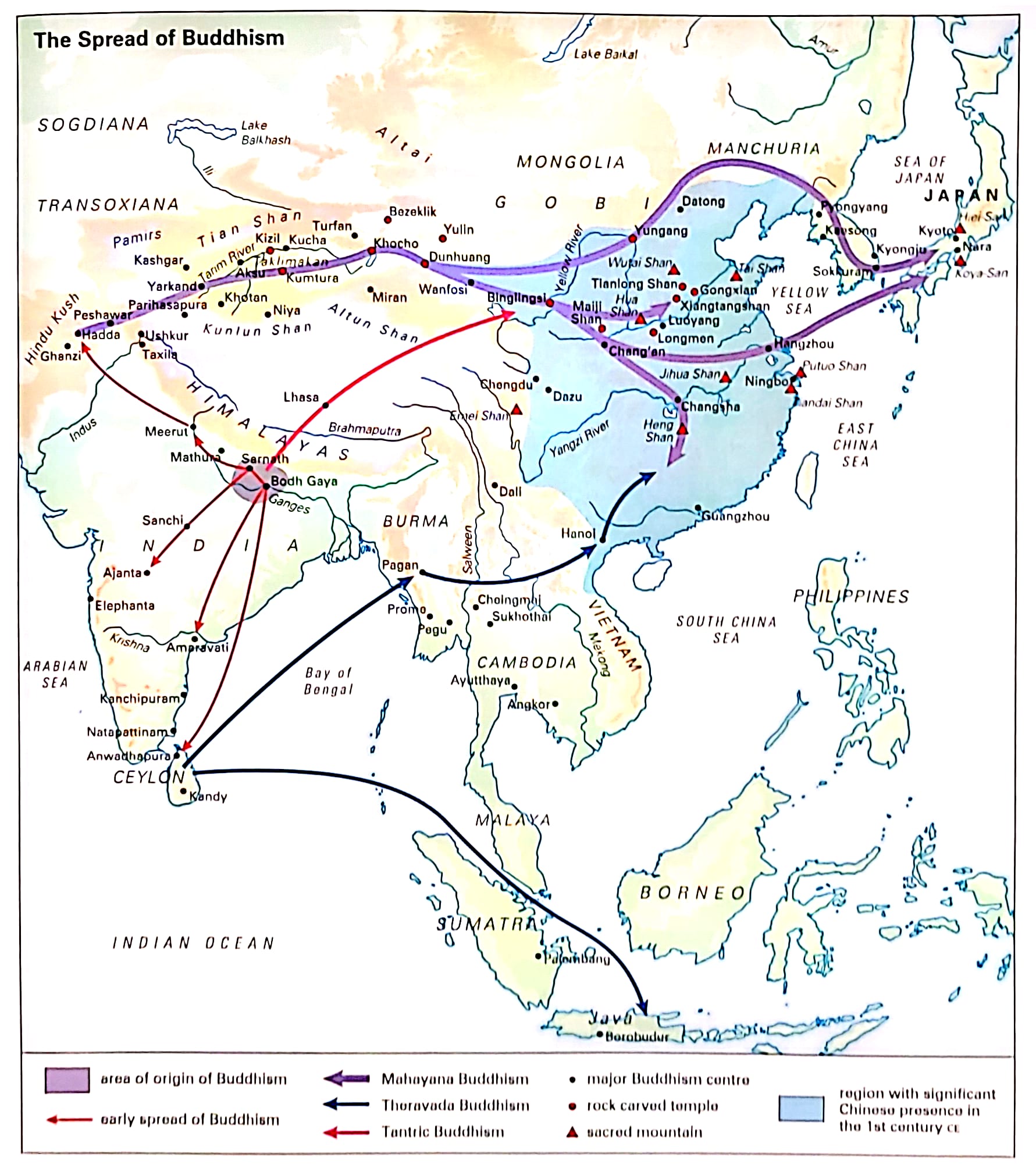3. Buddhism
Buddhism, founded by the Buddha, refers to Sakyamuni (565 – 486 B.C), a Hindu prince. It was introduced to China around the first century during the Han Dynasty (202 B.C.- 220) and spread widely during the Wei (220-265) and Jin (265-420) dynasties. Integrated with traditional ethics and religious concepts, Indian Buddhism became Chinese Buddhism and had reached its peak in popularity by the Sui (581-618) and Tang (618-907) dynasties with the strong support of the ruling class.

The Spread of Buddhism
The” nature of Buddha” in Indian Buddhism is changed to the “nature of mind” in Confucianism. The Confucian’s “nature of mind” transfers the core teachings of Buddhism, including the Four Noble Truths and the Eightfold Path, focus on the alleviation of suffering and the attainment of enlightenment through mindfulness, meditation, and ethical conduct.

